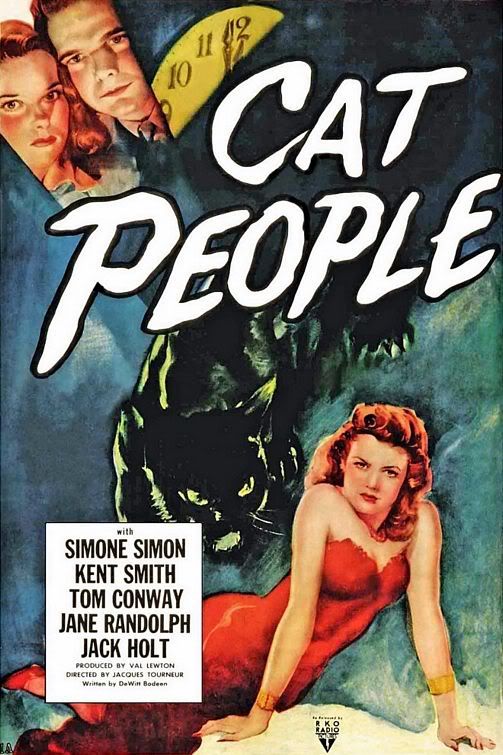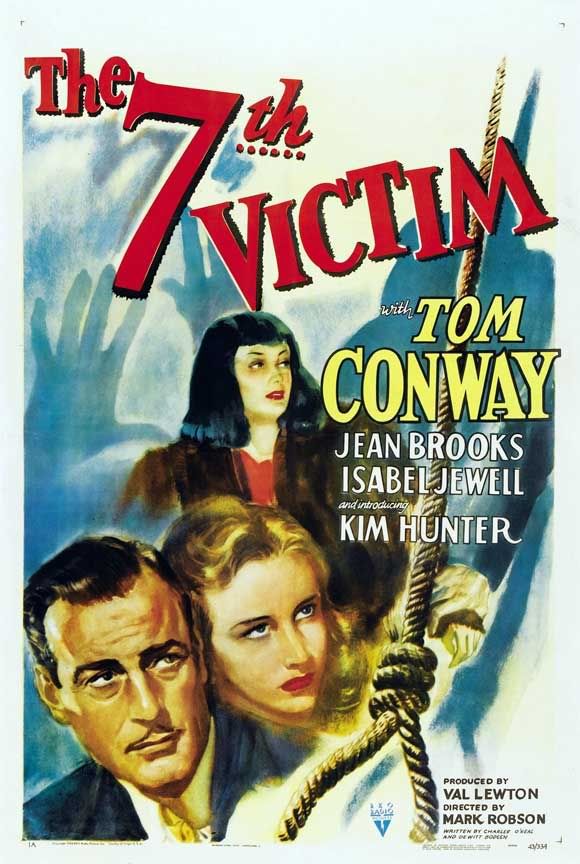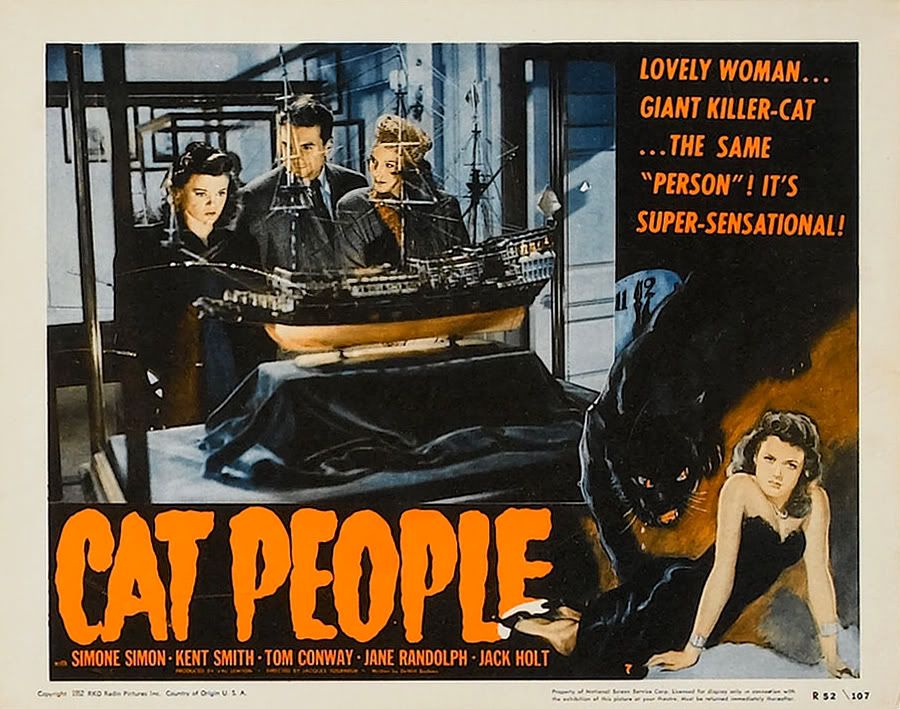Lost Light Lewton: Cat People + The Seventh Victim
by Ryland Walker Knight


[PFA's got five double bills of Val Lewton pictures over the next few weeks. See the line-up here. I've never seen any of them on a silver screen until now, so here's a little catalog/tour of this new angle on things. If you want to play along at home, the films are all on Netflix thanks to this handy box set.]

Cat People proved more popular, as ever, but The Seventh Victim's got audacity and depravity and terror in spades and in shadows all its own, all the deeper and deleterious. In more surprising turns than the Tourneur, this later, odder picture may also be the best argument for suicide ever put on film: the act is never not selfish, but the film seems to say that death's end can be a welcome and necessary release for some souls. Alternately, the sidelines of this Victim (most of which masquerade as the "a-plot" though the most poignant claims its right to speak near the close, as an aside) chant a hymn to living—in the world, with its vicissitudes and with its frights, without fear for the diurnal. But there is a pressure in this world, a cloud clamping its spirit, and it begins with the film's opening epigram, attributed as "Holy Sonnet VII" to Jonne Dunne (natch & sic): "I runne to death, and death meets me as fast, and all my pleasures are like yesterday."
The film begins in this plot, following little sister Mary (Kim Hunter's all eyes) as she searches for her missing sibling, Jacqueline. Robson and Lewton (and DeWitt Bodeen and Charles O'Neal) keep Jacqueline off screen for as long as narratively possible, and her first sighting is the briefest tease possible, which fits and throws fools for fits. She's more an idea than a person that way, kept intangible even when cloistered, impervious to the whole ball of wax rolled about her, including love. Every angle on her in the world is some kind of leeching, a pedestal or a clamp or a knife. That is, through its increasing ellipses, all things fly by like in life and demands pile up, the picture puts us in her paranoia, inside her depression, and all we understand is all that pressure from without. Mary's plight is motivated by saving her own skin, not her sister's, and once it's locked secure with that perverse reversal of fortune that is the love of Gregory Ward (Jacqueline's husband), the film drops her significance. She's played "naive" and kept a doll, at the world and Ward's surprisingly tender mercies. But it's the banal prejudices of these "betters" that keep Jacqueline tethered to life; we slowly see that their concern is just as selfish as her need to escape. It's about control, not debt. It's devastating precisely because it makes sense why this beauty might want to thud dead alone in an empty room. (So sad that Jean Brooks, too, was similarly unfit and unhappy.)

—not quite bottled, or adrift
Control is of course the theme in Cat People, too, as its Simon Simone fails herself, but that's more or less unavoidable. We are beasts of lust, the film says, bent to prey on each other. It's a fantastic metaphor, and the film's so gorgeous you can easily forget how wonky it unfurls. You cannot forget, however, how Simone's Irena does herself in because she can't handle her truth, her history, her instincts. Things get fudged all the time and every image moves eight ways; as with Victim, each scene is laden with significance to pull interpretations in as many directions as possible. See, it's not just about sex, which is where Schrader failed. Of course, sex is a huge part, and the only problem I'd pose with these two films is their rather typical structures (though each climax is muted) date the film's view on women, and sex, in obvious ways—but that's like complaining that Chandler used sentences not stanzas. Besides, any time you can turn dread productive, as with The Seventh Victim's interrogation of the death drive, you've got a curious object. If I owned the DVD, I would like to look at just how blocky the film is, how its connect-four space links up lines of thought, and how that searchlight does cleave the picture to signal the descent. After all, even the girl looking for one last night on the town has to go down (some stairs) to find it, to find some last laughs.




No comments:
Post a Comment